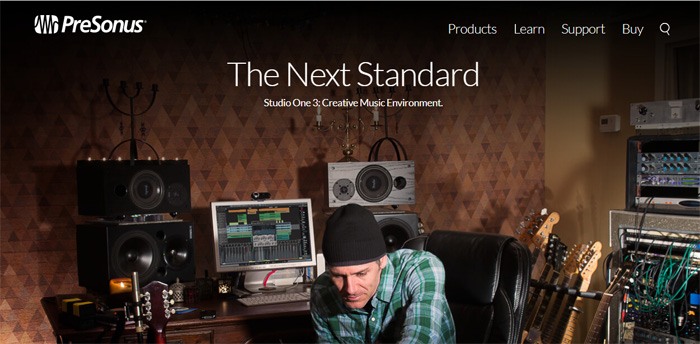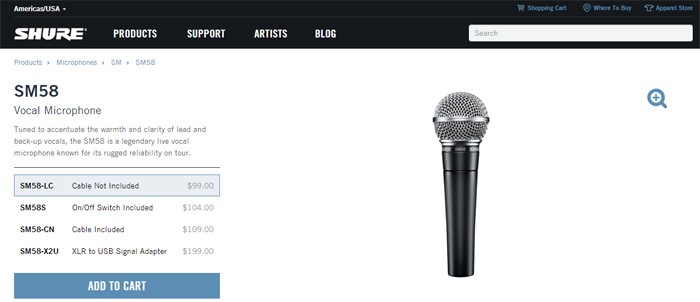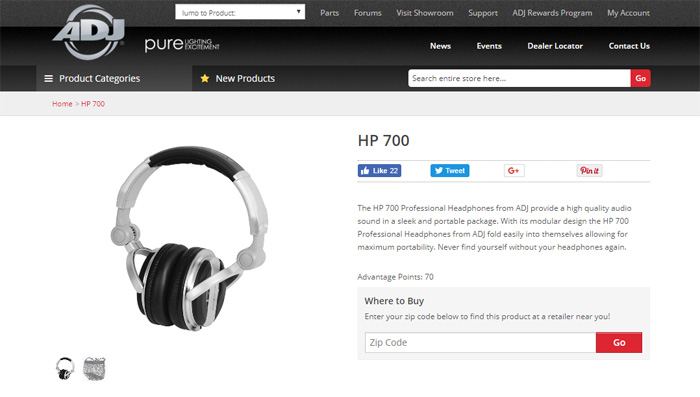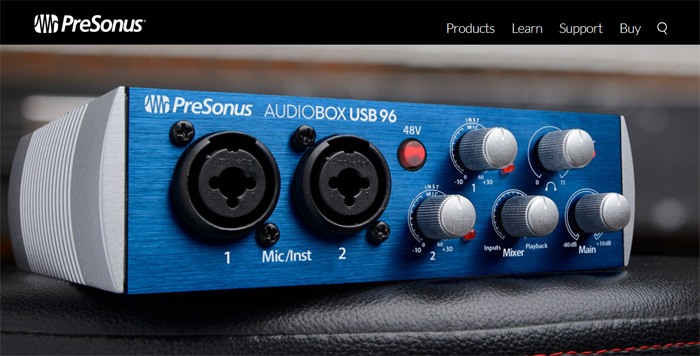
~ This is a guest post!

Are You Ready To Work Your Ass Off to Earn Your Lifestyle?
Are you tired of the daily grind? With a laptop and an internet connection I built a small website to generate income, and my life completely changed. Let me show you exactly how I’ve been doing it for more than 13 years.
Side hustles are getting more and more important—and I keep looking for them. Having a few extra streams of cash coming in never hurt anything, and this search has led me down a lot of avenues that I would never have imagined going down before.
With that being said, I have recently been reading a lot of blog posts where a home recording studio was mentioned as a potential source for extra money. But can you really make money with a home recording studio?
(Note: The title image is a screenshot of the PreSonus website advertisement for their DAW, PreSonus StudioOne 3, which is the software that I use for recording.)
Making Money With A Home Recording Studio
I actually have some rather unique insight into this one, as I have owned and operated my own private home recording studio for a couple of years now. In truth, this project did not start out as a side hustle, but as a means for me to pursue my own passion for music.
For that matter, this is an approach that might appeal to many musicians and other recording artists.
As time has gone by, I have become more and more aware of the possible side-hustle potential that a home studio could present.
But is it really worth it? Is it affordable to set up, and could it actually earn you any cash?
Let’s talk about that.
First Off, How Much Does A Home Recording Studio Cost?
Cost is obviously a pretty big factor here. I’ve known people who have put together $500 home studios, and I have seen home studios worth $100,000.
As a general rule, you will not need to have $100,000 to start a quality home studio… but it is certainly going to cost you more than $500 too, if you care at all about producing quality recordings, or unless you already have most of the gear just laying around.
Here is a small list of things that you will need to have.
- A place to set up your gear and record (a music room or a studio room, etc.)
- A computer capable of running a digital audio workspace (or DAW), unless you are planning on going old-school with some kind of analog machine
- The appropriate interface to plug things into your computer, and enough cables to hook everything up
- A quality microphone (the more expensive, the better)
- A keyboard, some kind of controller, and/or instruments that will allow you to play music (though in some cases this can all be done right on your digital workspace via mouse-clicks, samples, and your actual computer keyboard)
- A DAW (Digital Audio Workspace: software that will allow you to record onto your computer and mix/edit the audio)
- A set of speakers that you can use to mix, and a quality pair of headphones (the more expensive, the better)
This is obviously super-simplistic, but it is a list that you can use as a basis. There are so many different ways to set up a home studio that I could write an entire book about this.
But for now, I am going to talk about what I personally use, and then I will talk about how useful my setup would be if I were to try to start earning money with it as a side-hustle.
Also, keep in mind that I have a LOT of amateur experience as a musician and sound technician. I play several instruments proficiently, and have a lot of knowledge about music notation, keys, chords, constructing sounds, etc.
So keep in mind that if you are not already knowledgeable about these things, there will be a learning curve. You never truly stop learning about music, but it is also perfectly feasible to teach yourself what you need to know using resources online.
I know a guy who started a home studio from scratch who now releases his own EDM recordings to Spotify with pretty decent success… and he literally knew NOTHING about anything having to do with music when he started.
It took him a good year of practice and experience to start making quality music… but he did it. And if he could do it, so could you, if you are willing to dedicate some time and effort to it.
My Setup And What It Cost To Put It Together
Ok. I am going to go over this pretty briefly.
First of all, I already had a really nice Keyboard with a full 88 weighted keys and a midi output ($600). So that started me off ahead of the game. But the rest of the stuff I had to acquire. Here is basically what I bought and what it cost.
First of all, a Windows Desktop capable of running the DAW I wanted (I actually built my own PC to save money and really overkilled it. Because of that, it will last me for years.) 16 Gigs of RAM, one TB of memory, a solid-state hard drive for my operating system, and an i5 processor.
This, along with the keyboard, some really good speakers, a mouse, and a nice monitor, cost me $1,500. (Note: Most studios use Apple computers instead of Windows computers. I went with Windows because I could get more power for fewer dollars, and have not been disappointed… but then again, I don’t do a lot of ‘heavy duty’ recording either.
For my DAW, I chose to go with Presonus StudioOne software. If I were to describe this, I would call it a ‘generic’ version of ProTools, which is the most popular and professional DAW in the music industry (in my opinion).
But for me, StudioOne was awesome and really did the trick. This cost me $100. There are some free DAWS out there, with Audacity being one of the more popular ones… but if you want to really get down to business, you are going to have to invest some money into this.
For a microphone, I use a Sure SM58 vocal microphone.

Granted, this is a good microphone—but if I were ever going to try to charge more than just a very little bit of money to record demos, I would need to upgrade this. This is, in fact, probably the most pressing part of my system now that could use an upgrade.
I have also, more recently, upgraded my headphones, and ended up buying a pair of American Audio HP 700s.

These cost me $45. They are not necessarily top of the line—but thus-far, they have served me quite well, and work far better than the $20 ear-buds I was using before I purchased them!
I also needed to buy an interface. This is what you plug your midi/instruments/microphones into, which then plugs into your computer. Granted, not every setup will require an interface, as some software only requires you to have USB connectors. But my setup does, and I find that most more-professional setups will require this of you, in at least some capacity.
I am currently using the PreSonus AudioBox 22VSL, though this is actually a piece of hardware that is a little bit dated now. The newest version of it is called the AudioBox USB 96. You can buy this for around $100.

So now that you have a very, very basic idea of what my home studio is comprised of, it is time to talk about the possibility of making money with it.
Can You Actually Make Money With A Home Studio?
Yes you can, but it takes work and dedication. Not only do you have to market yourself well, but you need to be a part of the music community to gain trust and exposure, and you need to know what you are doing so that your work will be high enough in quality to be worth what you are charging.
Anyone can hook a microphone up to a laptop and do some simple recordings. That isn’t difficult. The difficult part is capturing a performance, editing/mixing/mastering it professionally, and then pressing some CDs or delivering quality sound files to your client to finish up the job.
And if you want to produce music yourself, you are going to need to know how to do that as well.
Recording With Local Musicians
I could probably get some work in my home studio if I wanted, but I doubt that I could charge very much at first. I could probably make $50 a pop recording songs for local bands or for producing songs for local singers, but I would be putting hours into each recording… and I would be lucky if I ended up earning $10 an hour at the end of the project.
Professional studios have a lot more to work with, can capture better sound with better microphones, and can do it in less time because they have larger spaces and more help. But they also charge more… usually starting at about $200 an hour and going up from there.
But then again, if I worked hard to market myself, I could probably raise my prices when I started to come up with some better samples, upgraded my gear, and starting showing people that I do good work.
But I doubt that I could ever really make more than $20 to $50 per hour unless I seriously upgraded my gear and got a better space to record in.
At the moment, my gear is set up in a corner of my living room. So yeah… this works well for my hobby music, but it does not really offer me the ability to record bands or singers without going to a lot of trouble.
But then again, with that being said, if someone is willing to do the work, buy gear, work their way up the ladder, and learn the craft well enough to get competitive, then there is a definite market for studio work that you could tap into. And once you reach a certain level, you can actually leverage this for some pretty serious side-hustle potential. But you will need to invest time, money, and resources into it.
It will not likely happen instantly or for free… so it is a bit of a tradeoff, and one that you will have to be committed to if you want to see it pay off.
You are also much more likely to succeed at this kind of thing if you have a talent/passion/true love for music. If you don’t, then you may find it frustrating or difficult to self-motivate yourself.
Getting Gigs Online
Another option is to sell your services online. There are many freelancer-for-hire websites where you can sell audio and recording related services.
One very simple website to get started with is called Fiverr.com. You won’t get paid much to begin with – just $5 to $10 per gig. People want things like editing music files, cleaning up audio noise, or splicing together tracks. They may even want a unique beat, sample, or track for their YouTube videos.
Check out what gigs are currently listed, and see which ones you could do. Though the site is called “Fiverr”, and used to only feature $5 gigs, now you can list your services in any increment of five, and I see many things listed for $30-$100 as well.
You can also set a base service for $5, then have a couple upgrades available. If you can knock out a service in 30 minutes at $10, that’s $20 per hour you’re suddenly earning from your home studio!
Alternatively, you could jump into the deep waters of bidding on jobs at UpWork.com. There’s a lot more variety of jobs, a lot better paying work, and a lot more of a professional atmosphere at this freelancer hub.
However, it’s also very competitive, so be prepared to do jobs cheaply until you build a strong profile (unless you already have a website that can showcase your amazing work). Eventually, you’ll be able to get regular-pay gigs from around the world and can grow your own brand of home recording artistry.
Leveraging The Internet To Make Money From Your Home Recording Studio
When most people think of making money with a home recording studio, they think of doing “jobs”. You know – get paid to do what a client wants. However, that’s not the only way you can profit.
I know a guy who has a website about the best audio headphones. He’s a musician, and he just writes about different kinds of audiophile stuff all day long. His website has affiliate links, and he makes money when someone clicks and buys.
You could do the same thing with your home recording studio. By writing reviews (or making YouTube videos) about your equipment, you could make money from clicks and sales of your recommendations.
That also means you can buy and try new recording stuff, and write it off as a business expense! Plus, if you’re getting gigs on the side, you now have multiple streams of income coming in, all stemming from your passion for music.
Affiliate marketing – the business my friend does, and the stuff that I do (my websites are about computer software and beer), is pretty easy if you know what you’re writing about.
Even if you’re not an expert, it’s pretty easy to read stuff online, then write your own opinions on your website/blog. You can learn how to do what we do here. They’ll teach you how to pick a topic, build a website, create content, and add links to your site so that you can make money.
What do you think? Would you rather make money selling gigs locally, selling gigs online, or promoting recording equipment through a website?
There are a lot of ways to make money online. Some are good, some not, but ALL of them are still just trading hours for dollars.
Starting your own affiliate website really is the best way to build passive income and "make money while you sleep". Affiliate websites earn income in every timezone, and can be instantly accessed by billions of smartphones across the globe!

Nathaniell
What's up ladies and dudes! Great to finally meet you, and I hope you enjoyed this post. My name is Nathaniell and I'm the owner of One More Cup of Coffee. I started my first online business in 2010 promoting computer software and now I help newbies start their own businesses. Sign up for my #1 recommended training course and learn how to start your business for FREE!

 5 Gold & Silver Network Marketing Companies Gold Bugs
5 Gold & Silver Network Marketing Companies Gold Bugs
Leave a Reply